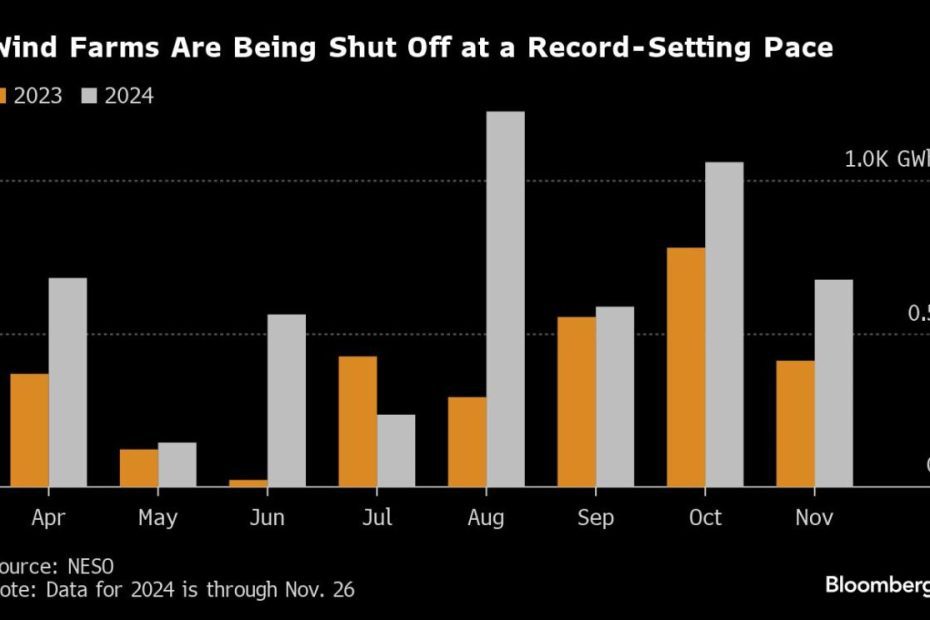(Bloomberg) — It's shaping up to be a record year for wind energy in Britain, at least in terms of the amount lost.
Most read from Bloomberg
The growing capacity and stormy weather should have led to enormous growth in production in 2024. But the electricity grid cannot cope, forcing the operator to pay wind farms to switch them off, a cost ultimately borne by consumers. It's a situation that threatens plans to decarbonise the network by 2030 and makes it harder to cut bills.
Critical to the net zero network target is a massive expansion of renewable energy, especially from wind power. Britain has increased its offshore fleet by 50% in the past five years and will double it in the next five, according to data from BloombergNEF.
But the network has not expanded at the same pace. As a result, operators are increasingly paying wind farms, especially those in Scotland, not to operate them. So far this year, Britain has spent more than £1 billion ($1.3 billion) on “congestion costs” to switch off power stations that cannot supply electricity due to grid restrictions, and switch others on.
When Storm Bert hit Britain last month, some of the newest and largest wind farms were shut down. The £3 billion Seagreen project in Scotland, owned by SSE Plc and TotalEnergies SE, was halted. SSE's Viking development in the Shetland Islands was also closed.
The utility wants to build an even bigger wind farm off the coast of Scotland, which could further exacerbate the bottleneck unless the electricity grid is expanded. A statement said developers should leverage Scottish renewable energy sources to meet the UK's energy security goals. And to this end, transmission infrastructure is crucial.
Wind versus gas
British producers usually sell their production in advance on the wholesale market. But those transactions don't take into account the physical constraints of balancing supply and demand in real time. To keep the lights on, the operator steps in, paying some exchanges to turn off and others closer to the demand centers to start.
This often means shutting down a distant wind farm and starting up a gas-fired power plant closer to a city.
“The outdated rules of our energy system mean that large amounts of cheap green energy are wasted,” says Clem Cowton, director of external affairs at supplier Octopus Energy Group. “It is absurd that Britain is paying Scottish wind farms to switch off when it is windy, while at the same time paying gas stations in the south to switch on.”
Restricting generations has become increasingly common. This year's congestion costs exceed last year's total and are second only to 2022, when energy prices were nearly three times higher.

